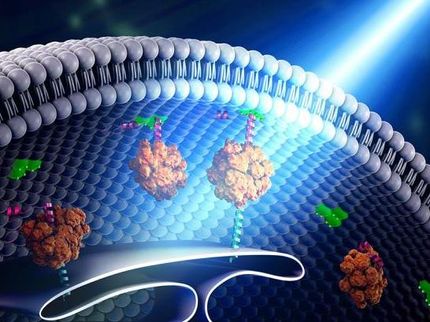Major Award for an Immunologist from the University of Freiburg
Advertisement
Prof. Dr. Michael Reth, professor of Molecular Immunology at the Institute of Biology III, speaker of the excellence cluster Centre for Biological Signaling Studies BIOSS and group leader at the Max Planck Institute of Immunobiology and Epigenetics in Freiburg, has been awarded an Advanced Grant of the European Research Council (ERC). The 2.24 million Euro award will be used to fund research over the next 5 years.
The Albert-Ludwigs-University scientist wants to use this special funding to explore the nanoscale organization of proteins in biological membranes. With his nanoscale explorer program, Reth and his group wish to obtain new insights into membrane processes of normal and diseased cells.

Prof. Dr. Michael Reth
BIOSS
The funded project, „Nanoscale analysis of protein islands on lymphocytes”, is a continuation of Reth’s research on the structure and function of receptors on immune cells. Receptors are membrane proteins or protein complexes that are associated with intracellular signaling molecules and can induce or regulate processes in cells. With his research group, Reth has proposed a new model for the activation of the B cell antigen receptor and recently validated it by employing new methods to study membrane proteins. His research shows that the receptor organization on the membrane is much more complex than has been appreciated so far.
Because of the physical limitations of visible light with a diffraction limit of 250 nanometers (nm), the structure of receptors cannot be observed directly. Yet most receptors interact with each other in a range below 150 nm. Reth’s group has developed methods allowing one to study the organization and reorganization of membrane proteins in a range between 10 and 100 nm. “When we study biological membranes in the nanoscale range we feel like oceanologists who are for the first time able to explore the deepest parts of the ocean and discover new worlds” says Reth. This project is bound to provide major new insights in the organization and function of biological membranes in the coming years. A better understanding of the nanoscale membrane protein organization could lead to the development of new therapies that control deregulated signaling processes.


















































